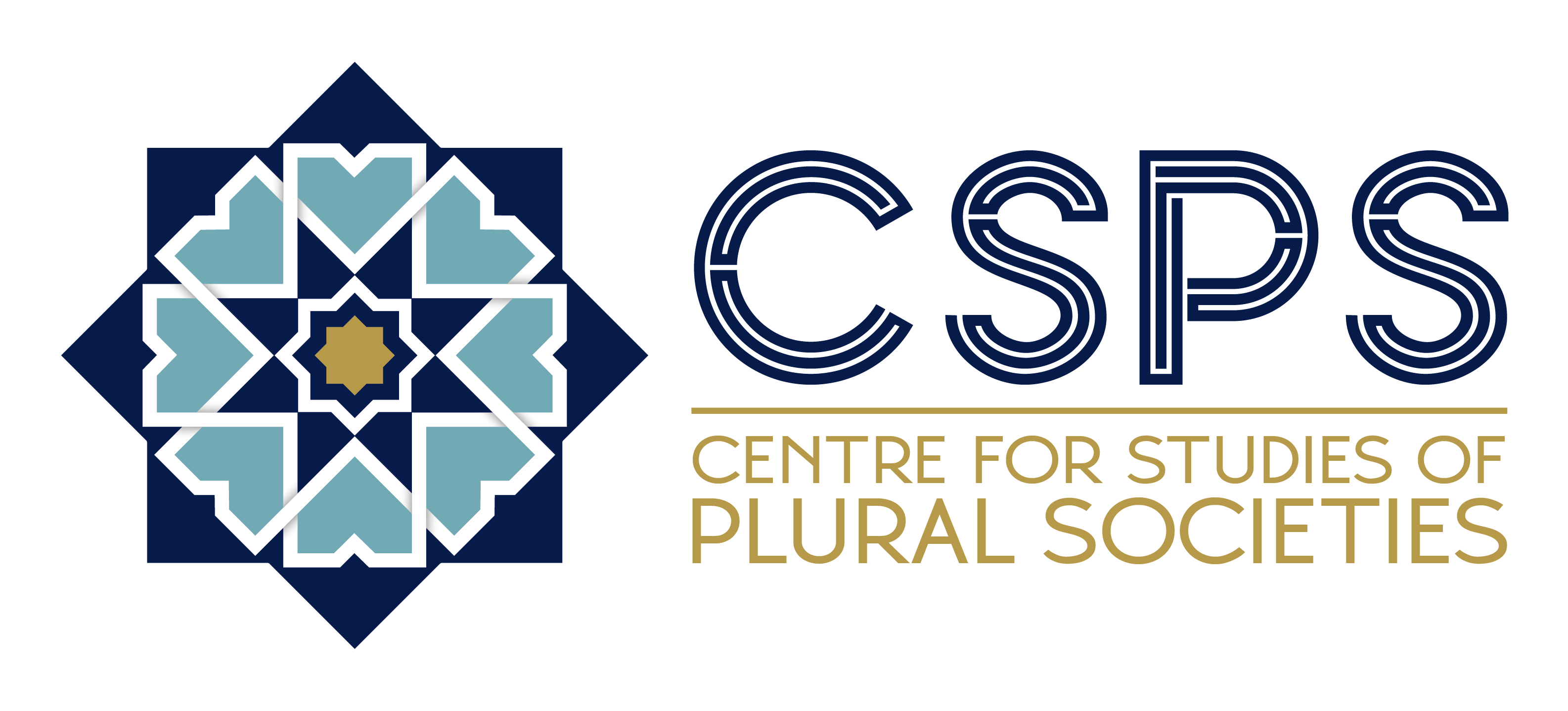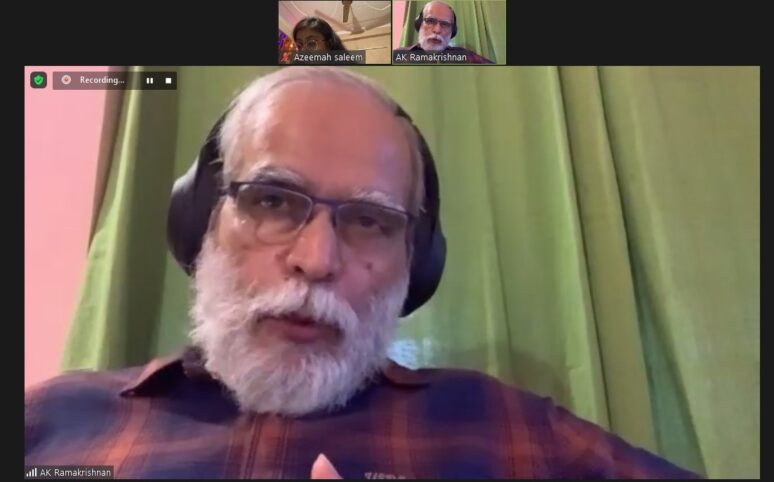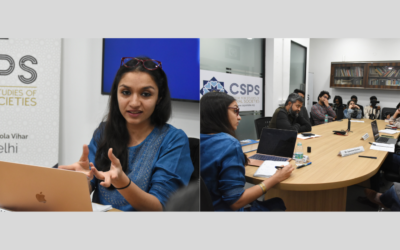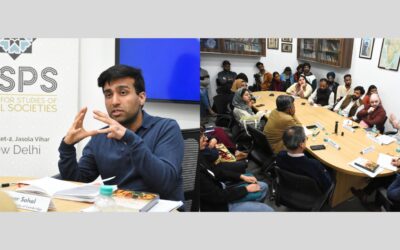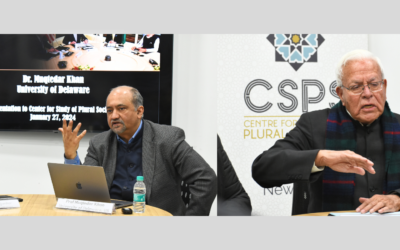About the Speaker
Prof. A.K. Ramakrishnan is a former Chairperson for the Centre of West Asian Studies, SIS, JNU. He has been a visiting faculty at Allameh Tabataba’I University, Iran, and an Erasmus visiting professor at Universität Pompeu Fabra, Spain and Kaunas Technical University, Lithuania. His areas of interest include West Asian Studies, Theories of International Studies, Gender and Post-Colonialism. His Publications include US Perception of Iran: Approaches and Policies and Society and Changes in Contemporary Gulf.
Lecture by Prof. R.K. Ramakrishnan
Prof. Ramakrishnan started the session by problematising the common assumption that the problem of Palestine is a religious struggle between the Jews and the Muslims. According to Prof Ramakrishnan, to assume that there is a religious struggle between Muslims and Jews means that they are two equal sides, which they are not. Secondly, a Christian minority living in the occupied west bank and many Jews living in the state of Israel and worldwide support the Palestinian struggle. Hence the neat equation of Jews versus Muslims does not do justice to the complexities and diversity of the problem. While the decolonisation process has taken place in the rest of the world, Palestine is still under the colonial occupation of the state of Israel.
Talking about the modern history of Palestine, Prof Ramakrishnan pointed out that Palestinians had to face two kinds of colonialism, one being the British Colonial rule and the other being the European Jewish colonisation. The professor dwelled on the historical origins of the British colonisation of Palestine how under the aegis of the League of Nations mandate system, British colonialism was authenticated because of the orientalist trope of “white man’s burden.”
Prof. Ramakrishnan said that after establishing the World Jewish Organisation, the systematic colonisation of Palestinian began in the first decade of the 20th century, wherein waves of European Jews, particularly Russians, started migrating to Palestine. According to him, this was the second colonisation the Palestinians faced by the European Jewish community.
Commenting on the infamous role of the British, Prof. Ramakrishnan said, while the British empire had proclaimed the support for the establishment of a Jewish home, it also wanted to pacify the Arabs, hence adding to the complexities of the problem. It referred the Palestinian question to the UN, which eventually adopted the Partition Resolution. (Arab and Jewish states).
Prof. Ramakrishnan discussed how two states were supposed to emerge with maps prepared regarding places to the Jewish and Palestinian sides. The final result was a unilateral declaration regarding a Jewish state backed by the US and other entities, which contrasted the evolution of a Palestinian state. It was followed by the Arab-Israeli war, a result of impositions by Israel. Later on, there was further encroachment by Israel. He deduced that the establishment of an independent Palestinian state is at the core of the Palestinian problem.
It is fundamental to realise, says Prof. Ramakrishnan, that the Palestinians will be a set of people who are refugees in their land. Even though militarily, Israel withdrew from the Gaza strip, they still controlled it. The problem was also fuelled by Palestine’s systemic colonisation. The situation was further complicated by the emergence of solidarity from the mass for the Palestinian cause by the incident in May.
Prof. Ramakrishnan viewed the continued occupation by Israel as illegal and claimed that the UNSC had already asked the state to withdraw after 1967, but nothing has come out of it. After the 1973 Arab-Israeli war, all contending parties called for peaceful settlement of the issue. The primary question, however, remained freedom for Palestinians. Furthermore, Netanyahu’s government points out Prof. Ramakrishnan, amended the Israeli basic law in 2018, which was now named the Basic law of the nation-state of Jewish people, which stipulates that the Palestinian population of Israel are second class citizens by law. Several reports in 2021 highlighted this issue.
What were the Palestinians doing to resist this? Prof. Ramakrishnan mentions the role of the Palestine Liberation Organisation, its functions and talks about the Oslo Accord that demanded the return of Yasser Arafat. He mentions the first ‘intifada’ of 1987 that followed PLO’s acceptance of the State of Israel, and the declaration of Palestinian independence was undertaken. Finally, Prof. Ramakrishnan enlightens us with the cautious Palestinians of which the younger generation is a part, protesting against the forceful eviction and a resistance that ensued against Israeli bombardment shows growth of opposition against Israel’s practices in contemporary times.
Prof. Ramakrishnan took questions from the enthusiastic interns who showed great curiosity and asked well-placed questions per the topic. The session thus concluded with a vote of thanks by Azeemah Saleem, a doctoral candidate at the Centre for West Asian Studies, JNU.
The report is prepared by CSPS Research Interns: Anirban Banerjee (Jadavpur University) and Syed Hammad Mehraj (Jamia Millia Islamia)
